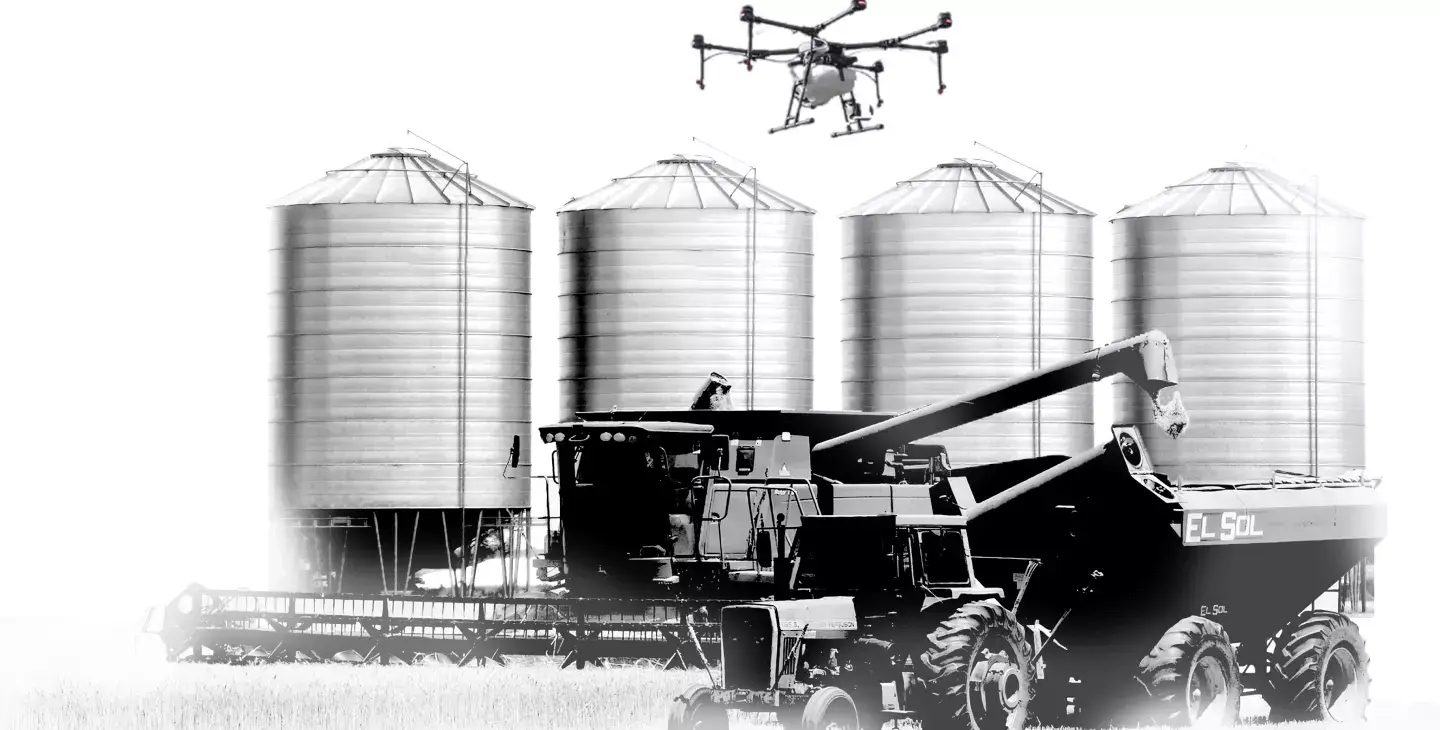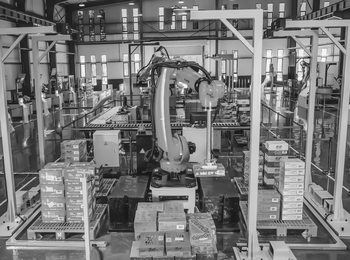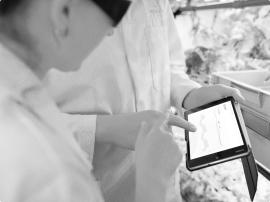Edge Cybersecurity in Agriculture
Continuous and rapid global digitization, fueled by advances in information and communication technologies is a trend that has profoundly transformed many market sectors and created opportunities in a variety of areas of global economies and society.
According to the most recent research from the United Nations’ Food and Agriculture organization,
the world will need to produce 70% more food by 2050
when compared to what is currently being produced.
The smart agriculture market size is also expected to dramatically increase to meet the demands of an anticipated rising number of connected Internet of Things (IoT) devices used for agricultural purposes.
The fragility of the food supply chain became extremely evident over the last couple of years when COVID-19 hit. Thus, it’s easy to understand how critical it is to protect the farming and agriculture industries. Simultaneously, agriculture is becoming increasingly automated. As a result, new cybersecurity threats are emerging to complement existing threats such as weather and pests. This issue must be recognized and addressed not only by our farmers, but also by technologists and legislators.
Agriculture, like every other business, is being transformed by digital technology. Precision agriculture (PA) is a growing trend that uses technology to ensure that crops and soil get exactly what they need to thrive. Mobile apps, smart sensors, drones, and cloud computing technologies are all used in precision agriculture. This shift is occurring across the board in the agricultural industry, regardless of size.
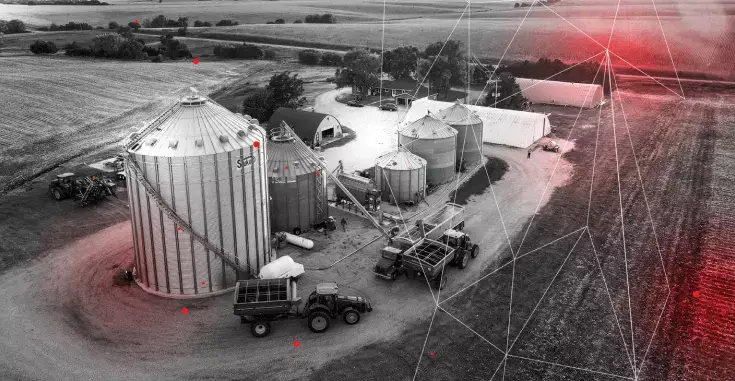
Precision agriculture is made up of three sorts of platforms: stationary, airborne, and ground-based mobile, all of which rely on IoT and APIs. Sensor and robotic IoT devices constantly exchange data over the Internet via APIs, allowing for more flexibility in communicating and managing complex farm systems. However, it broadens the attack surface and introduces a slew of cybersecurity vulnerabilities.
Precision agriculture has a lot of benefits, but it also has a lot of potential for widespread disruption. It is almost probable that insecure devices will be discovered and exploited. The consequences could be disastrous. Data could be easily lost or stolen, the food supply could be disrupted, or human lives could be jeopardized without effective cybersecurity on the IoT interfaces for the physical devices and sensors precision agriculture uses.
Edge Risk Use Cases in Agriculture
The newness of smart technologies
Smart technology and remote administration utilized in PA and smart farming are brand new for its stakeholders in the heavily mechanized landscape of agriculture, with most of the new concerns in this domain being strongly linked to similar threats in other industries. Cybersecurity, data integrity, and data loss are the most common dangers. Furthermore, because the PA industry employs heavy machinery that is linked to the internet, there are a slew of new vulnerabilities that could have severe repercussions.
Modern agriculture is exposed to cybersecurity and IoT-related threats that are closely interconnected with PA and smart farming.
Equipment vulnerabilities
Harsh environmental conditions, such as high temperatures, humidity, rain, winds, and other phenomena, have a direct impact on the agricultural industry and can cause major damage to electromechanical equipment.
All of these sensors are prone to failure, resulting in inaccurate measurements and commands, which could lead to a production disaster. In addition to monitoring and controlling sensors, the low-power wireless networks used in the agricultural industry can be affected by harsh environmental conditions such as temperature, humidity, obstructions, and human presence, resulting in communication and data loss. Furthermore, sensors and network devices are often physically accessible. This poses a significant threat to farmlands, as anyone with bad intent can gain access to them and either destroy or compromise them, causing them to malfunction.
Data collected from IoT sensors and other agricultural gear is now being shared online, posing yet another potential security issue. Farmers can suffer substantial financial and personal consequences if their data is breached, hence data privacy and ownership are a critical security issue in the agricultural sector.
As more technological advancements are adopted by the agriculture and food industry, the number of susceptible entry points for malicious attacks grows. These technological advancements include wireless connections, Radio Frequency Identification (RFID), infrastructure sensors, mobile devices, automation systems for PA, unmanned aerial vehicles and drones, combination of biotechnology and nanotechnology, artificial intelligence, and more.
Data vulnerabilities
Confidentiality threats include internal data thefts to harm an agri-business or farmer, intentional data theft via smart apps and platforms non-compliant with confidentiality regulations, unethical sale of data to minimize or damage farmer profits, and unauthorized access to sensitive and confidential data using equipment like drones, sensors, cameras, and more, all with the goal of compromising agricultural security.
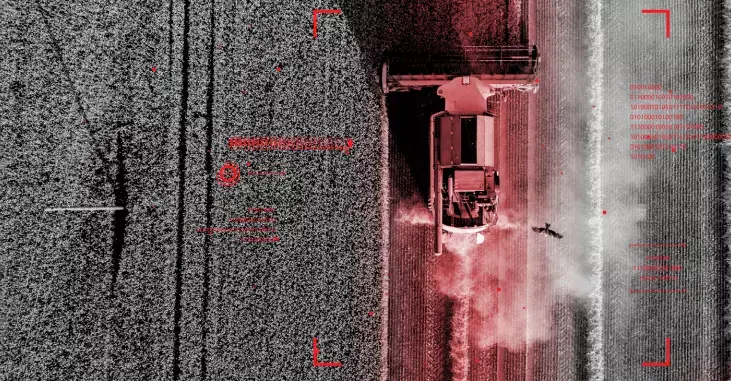
Because PA is primarily concerned with automated data gathering, analysis, and decision-making, data integrity and availability are critical. Data falsification, whether deliberate or accidental, can have serious repercussions, particularly because it can influence the judgments made by artificial intelligence (e.g., Machine Learning) algorithms and automation systems, resulting in interruption or destruction of production. False data can also produce dangerous scenarios for both the products and the farmers if fertilizers or pesticides are abused, which can also be eventually present in the plates of consumers.
By using connected smart devices, a large volume of heterogeneous forms of data is sent over the networks. As smart technology becomes more accessible, hackers will be able to exploit many access points within users' homes, offices, and any other application or space.
Cyber criminals can hack into a system using one of the entry points created by connected smart devices and exploit vulnerabilities at many different layers such as network, application, Edge, IoT, or middleware. Agricultural stakeholders must identify and protect their Edge and IoT environments as well as adhere to modern security and privacy standards.
How AI EdgeLabs Can Strengthen Cybersecurity in Agriculture
Every industry that has embraced the Internet's rising capabilities has had to deal with the possibility of anyone, anywhere interfering with and subverting their systems at some point. It is now also time for agriculture to face this fact. Organizations need to make security part of their business acumen and consider it just as vital as anything else they do to make their business successful, because agriculture and farming are some of the most critical components of any civilization.
In terms of Edge and IoT security, the rapid evolution and application of smart communication technologies, in addition to the digitization and automation of business, introduces new threats and dangers in the worldwide market. In the dynamic and distributed cyber-physical environment, potential assaults on various smart agricultural systems can lead to major security challenges.
Nowadays, as cyber threats and attacks are more common because of digitization and the growing number of internet-connected devices, cybersecurity with smart technologies like artificial intelligence and deep reinforcement learning is critical.
AI EdgeLabs is a robust, enterprise-grade, and AI-based platform that brings advanced network visibility, early threat detection, and automated incident response and remediation vital for the newest technologies for agriculture and any industry.
AI EdgeLabs is a robust, enterprise-grade, and AI-based platform that brings advanced network visibility, early threat detection, and automated incident response and remediation vital for the agriculture industry. Enriched with Deep Reinforcement Learning, our platform is smart and impressively accurate in detecting threats before they even have a chance to cause harm.
